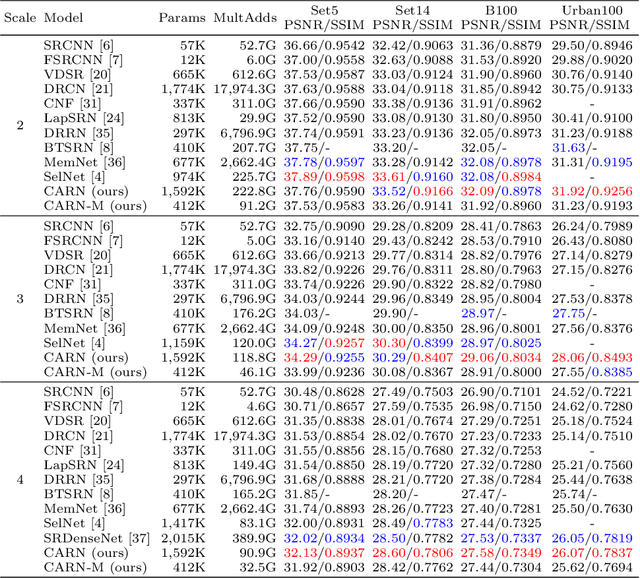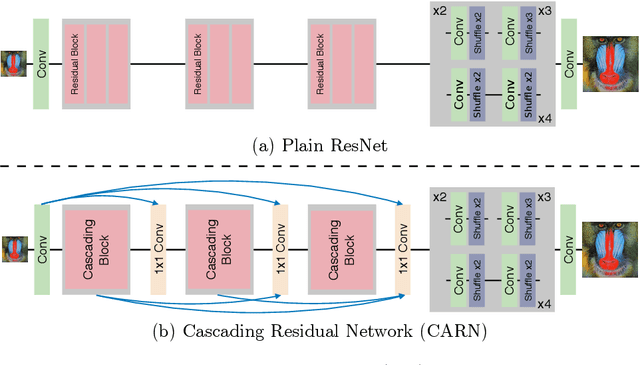Fast, Accurate, and Lightweight Super-Resolution with Cascading Residual Network
Paper and Code
Oct 04, 2018



In recent years, deep learning methods have been successfully applied to single-image super-resolution tasks. Despite their great performances, deep learning methods cannot be easily applied to real-world applications due to the requirement of heavy computation. In this paper, we address this issue by proposing an accurate and lightweight deep network for image super-resolution. In detail, we design an architecture that implements a cascading mechanism upon a residual network. We also present variant models of the proposed cascading residual network to further improve efficiency. Our extensive experiments show that even with much fewer parameters and operations, our models achieve performance comparable to that of state-of-the-art methods.
* European Conference on Computer Vision (ECCV), 2018
 Add to Chrome
Add to Chrome Add to Firefox
Add to Firefox Add to Edge
Add to Edge